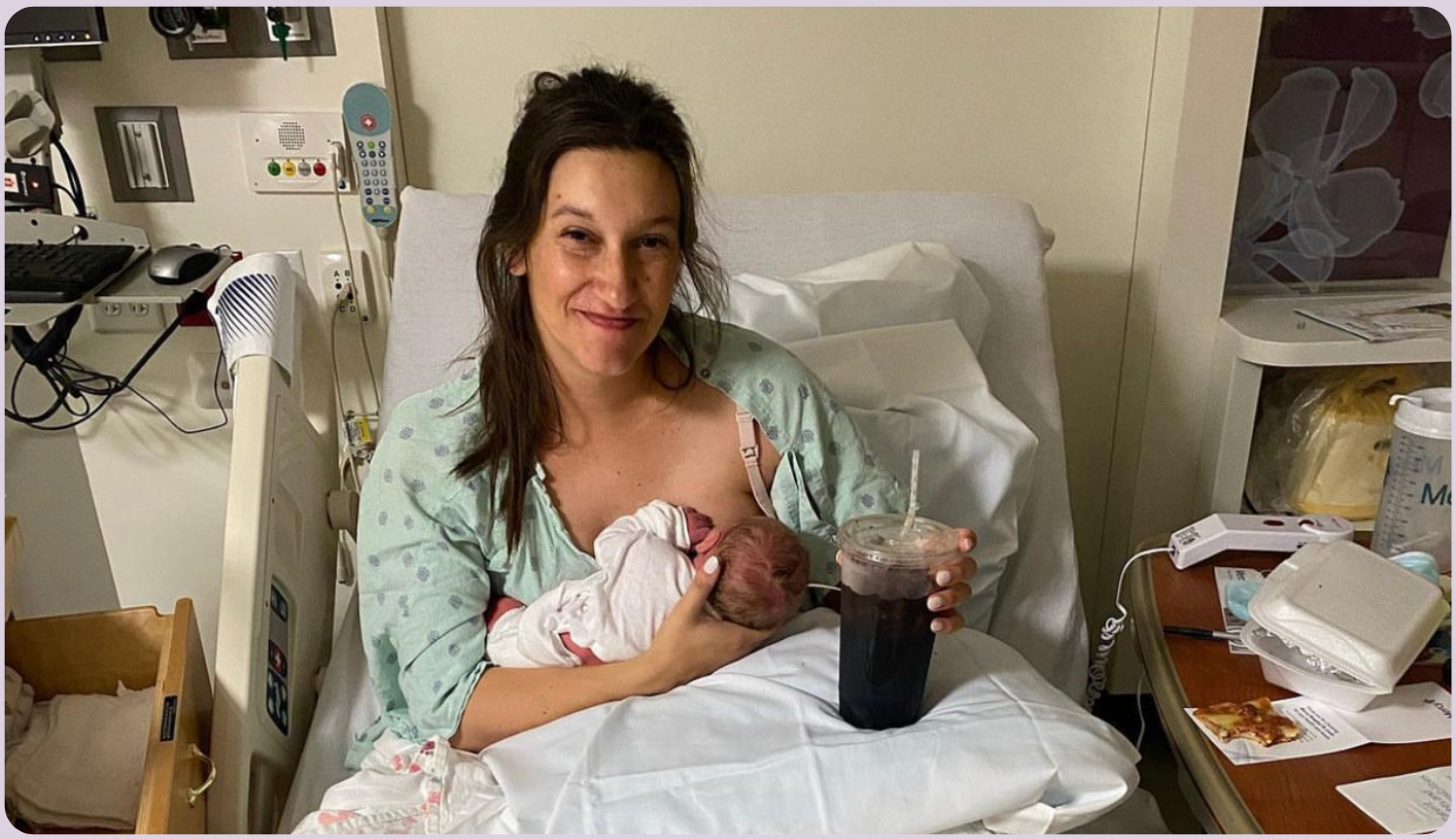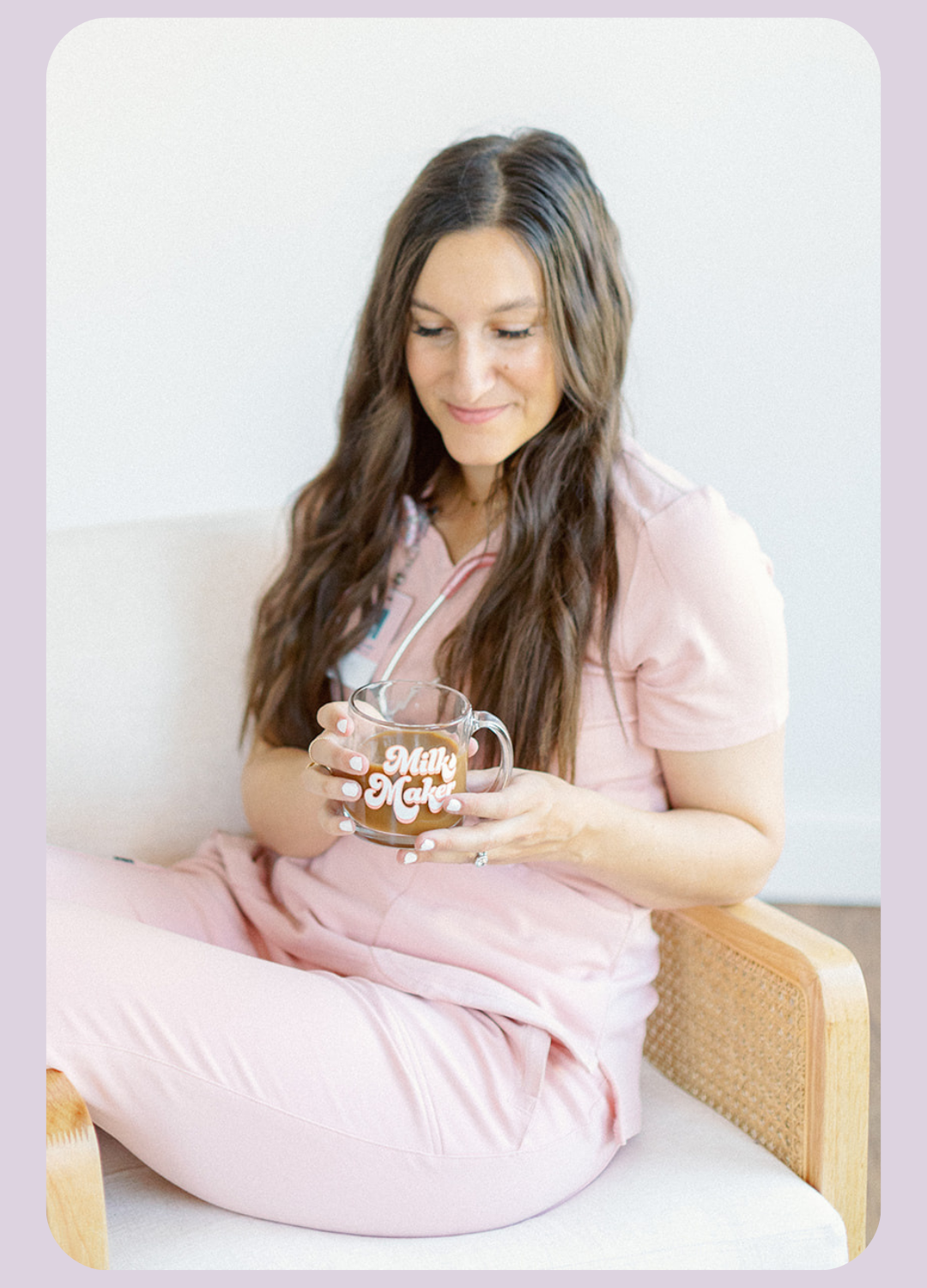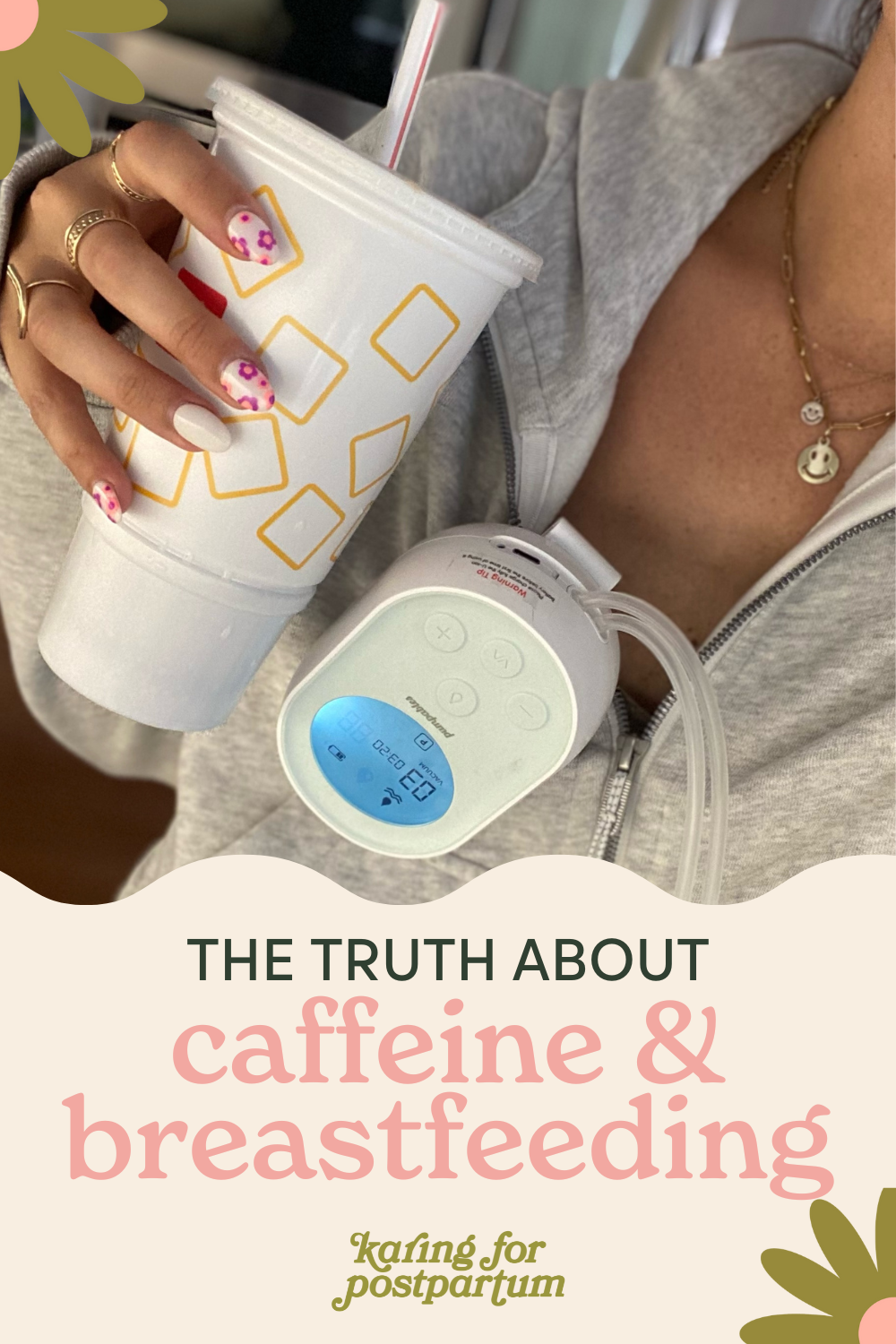Caffeine & Breastfeeding
Today we’re talking about the hot topic of caffeine consumption while breastfeeding.
Listen, I love my caffeine! I don’t drink coffee, but I depend on caffeine in my Sundrop and McDonald’s Dr. Pepper to get me through the days just like some of you depend on your coffee, tea, soda, energy drinks etc!
I often see so many myths and misinformation in the conversations surrounding what is/isn’t safe to eat or drink during breastfeeding in general— especially when it comes to caffeine, alcohol, and spicy foods. A lot of what we believe about what we can’t eat or drink while breastfeeding is based on hearsay, not evidence backed by research (many times actually the opposite!).
When we think there are all of these limitations/restrictions on what we can eat or drink while breastfeeding, it just makes the already-difficult task that much harder to do. The misinformation makes breastfeeding seem incredibly restricting, which may deter some women away from breastfeeding completely!
Today, we’re going to try and debunk some myths around caffeine consumption while breastfeeding and hopefully establish some research so that you can choose what’s best for you and your baby.
Let’s jump in!
What does the research say?
🔎 Infant Risk Center did a deep dive on “Breastfeeding, Caffeine, and Energy Drinks” that is absolutely worth taking the time to read.
🔎 The current daily recommendation for breastfeeding mamas is 200-300mg of caffeine.
🔎 ^There hasn’t been a strong amount of research done to support this specific number. It is more just a generalized number that is deemed “safe”. There have not been enough large studies as evidence to support it as a definitive caffeine intake amount. Some studies have even shown a bit more is likely fine.
🔎 PubMed.gov has many research articles on this topic that you can read and explore.
🔎 Some smaller studies have shown that up to 500mg of caffeine is safe while breastfeeding with no impact on baby.
🔎Premature babies received dosed caffeine in the NICU to help with breathing.
🔎 As with many other things we talk about together, every baby is different, and every baby will respond differently to your caffeine consumption!
Be your own detective
Mama #1 might be able to drink 5 cups of coffee, and their baby will be unbothered.
Mama #2 might be able to drink 2 cups of coffee, and their baby will be very bothered.
Every baby will be different, and some babies are a bit more sensitive to certain things than others.
If you’re someone who loves their caffeine drink of choice, it’s usually fine to drink it in moderation and pay attention to your baby and how they respond to it.
Take the research above and be your own detective. Pay attention to your baby and look for the signs that your caffeine intake may be impacting them.
Wakefulness
Irritability
Fussiness
Jittery
Trouble falling and staying asleep
If you notice any of these symptoms and believe caffeine to be the culprit, ADJUST! Having caffeine does not have to be all or nothing! Find the balance that works for you and your baby.
Of course, all of these can be symptoms of other normal things going on with baby other than caffeine. It may take some trial and error to find the root and identify caffeine as the issue or not. As a starting point, check the caffeine amount in your drink(s) to know about how much you’re consuming.
Every baby is different!
What your baby may not be able to tolerate as a tiny newborn may change as they get older.
Be willing to adjust, and know that it doesn’t necessarily have to stay that way forever. As your baby gets bigger or is feeding less, try adding in more caffeine if you want and see how baby does with it.
New newborns have a harder time metabolizing caffeine than babies who are even a few months older.
Reducing or eliminating it at the start doesn’t mean it has to stay that way the entire time.
Preemie and/or NICU moms may actually see their care team give baby weight-based dosing of caffeine to help stimulate breathing. These doses are much higher than what crosses over into breast milk.
Mamas get bombarded with a million messages of the dos and don’ts when it comes to their babies. It’s important to remember that all of our journeys are going to look different, and that is OK and NORMAL.
Does it impact supply?
NO, IT DOES NOT DECREASE YOUR MILK SUPPLY!
This is a very widespread piece of misinformation that I see time and time again! Drinking coffee, tea, soda, etc., does not reduce your milk supply!
There’s no evidentiary basis for this information.
Caffeine is not directly related to milk supply/production.
The thought behind this is that if you are consuming very high amounts of caffeine and baby becomes symptomatic, like being jittery, it makes it hard for them to concentrate on feeding. Over time, it will lower milk supply if baby is not fully emptying the breast.
Recommendations
As with many other things we talk about, the process might require a bit of trial and error on your part. Watch my Caffeine & Breastfeeding highlight for more information about the topic!
So here’s a few things that we can do to address our caffeine consumption and make sure it’s safe for you and baby.
Know that it really can be safe to drink caffeine, and you most likely won’t have to surrender your favorite drinks!
Check your drinks to know how much caffeine you’re consuming
Watch for the signs and symptoms that baby isn’t tolerating it
If you see baby is impacted, try reducing your caffeine intake until you see improvement
You can also try eliminating it and slowly reintroducing/increasing your caffeine intake to see if you can find your’s and baby’s happy threshold
If you have questions about caffeine and lactation, talk with your pediatrician or lactation consultant!
If your baby has heart conditions, reflux, or other medical issues that caffeine can exacerbate, absolutely discuss that with your care team to come up with an individualized game plan! (ie lactation consultant, pediatrician, neonatologist, therapists, NP, etc.)
I promise you are doing an amazing job, and I hope you can feel a bit more confident and can relax and enjoy your favorite caffeinated drink!
You’ve got this, Mamas!
Xoxo,
Kar
Was this helpful? Save it for later!




